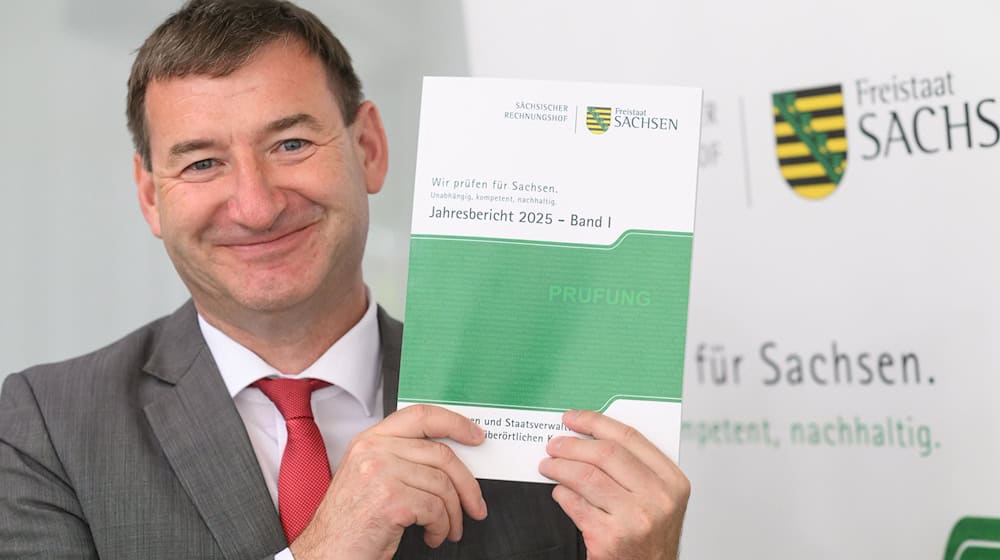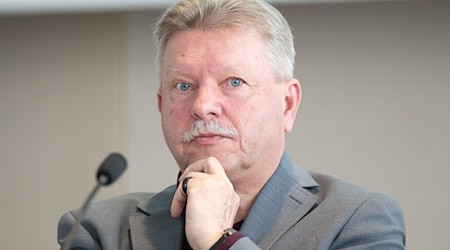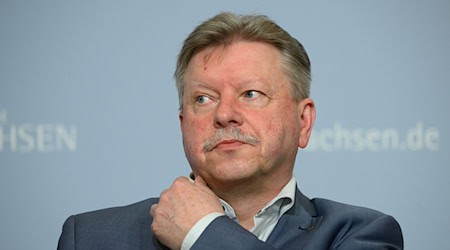Saxony's Court of Audit has emphatically called for a reform of the state budget. "A state budget should be sustainable on its own", said Jens Michel, head of the authority, at the presentation of the first part of its annual report. "The homework of tackling structural reforms must be done now. They must not be put off any longer into the future."
According to Michel, public finances have recently come more into focus. "When public finances receive more attention, this naturally pleases a court of auditors." This is particularly necessary in Saxony. It is slowly becoming clear to everyone that something is seriously wrong. Now it is time to make up for the mistakes of the past.
Despite a record budget, there is once again not enough money
Despite another record budget for 2025/2026, there is once again not enough money, Michel emphasized. "In our view, something is going wrong." Saxony must finally do its homework. We can no longer insist on "business as usual". Now, at the latest, it is clear that priorities need to be set. "The alarm signals are clear."
For the report, the auditors scrutinized the 2023 budget. Revenue and expenditure amounted to around 24.3 billion euros. Compared to the previous year, this was an increase of a good 11 percent. However, there was a shortfall of around 1.1 billion euros. The Ministry of Finance made use of the budget equalization reserve, among other things. The Court of Audit criticized the fact that no other option was used.
Saxony currently has to plug an even larger gap in the double budget for 2025/2026. The reserves have also been used up for this. Finance Minister Christian Piwarz (CDU) speaks of a transitional budget. He sees the real challenge in the 2027/2028 budget, as the financial cushion from the reserves will be gone by then. The Court of Audit therefore also sees the need to fundamentally change course.
Numerous examples of inefficient spending
The annual report lists numerous examples of inefficient use of taxpayers' money. For example, expenditure on overtime pay for teachers has risen steadily in recent years - from 600,000 euros in 2016 to around 9.8 million euros in 2022. Despite this, absenteeism has risen by 68 percent. Among other things, the Court of Audit demanded a standardized recording of working hours.
Taxation of crypto profits comes into sharper focus
For the first time, the Court of Audit focused on the taxation of profits from cryptocurrency trading. Saxony took in around 20 million euros in 2021. A single case resulted in an income tax bill of 13 million euros. "We suspect that the number of unreported cases is high," said auditor Skadi Stinshoff. The Court of Audit recommends that the tax authorities monitor crypto assets more closely in future and procure an evaluation program.
Criticism of university funding
There was criticism of the basic funding of universities. Although the number of students fell by 8 percent and the number of graduates by 13 percent between 2013 and 2022, the Free State provided universities with above-average basic funding and staffing compared to the rest of Germany, it said. According to the Court of Audit, criteria for the distribution of funds at individual universities should be developed.
The state of Saxony's roads was criticized. "The condition of the roads in the Free State has remained poor for 20 years," explained Stefan Rix, Vice President of the Court of Audit. Saxony only manages a third of the necessary maintenance measures. Funds earmarked for this would be used for other purposes.
President Michel also criticized the high personnel costs. They rose from 5.2 billion euros to 5.4 billion euros in 2022/2023. According to Michel, the measures that have now been initiated - the planned reduction of around 370 out of a total of around 96,000 jobs - are only a "small step". "In terms of the figures, I believe there is still more to be done."
Copyright 2025, dpa (www.dpa.de). All rights reserved










